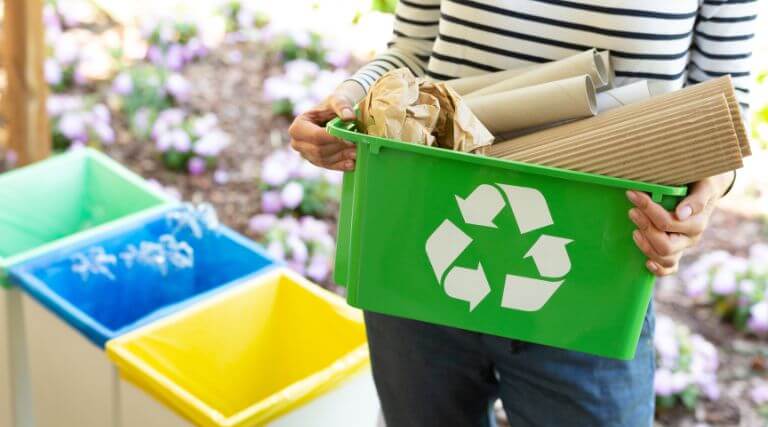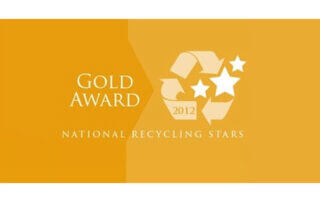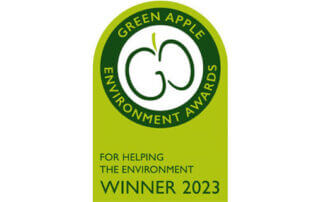
Understanding the difference between recycling and reusing is key to making environmentally conscious decisions in your daily life. While these terms are often used interchangeably, they involve distinct processes with unique impacts on reducing waste and conserving resources. By learning more about both, you can take practical steps to minimise your environmental footprint.
What Is Recycling?
Recycling is the process of converting waste materials into new products. This usually involves collecting, sorting, and processing discarded items so they can be transformed into raw materials and then remanufactured. Recycling helps conserve natural resources, reduce energy consumption, and decrease landfill waste.
Examples of Recycling
- Plastic Bottles: Melted down and repurposed into new bottles, containers, or even clothing fibres.
- Paper and Cardboard: Processed into new paper products, reducing the need for fresh timber.
- Glass: Crushed and melted to form new glass items without loss of quality.
- Metal: Aluminium and steel are often recycled into cans, car parts, and more.
While recycling is an effective way to manage waste, it requires significant energy and resources to collect, transport, and process materials.
Benefits of Recycling
- Reduces demand for virgin materials.
- Saves energy compared to manufacturing from raw resources.
- Minimises waste sent to landfills, reducing pollution.
However, recycling is not a perfect solution. Many materials can only be recycled a limited number of times before becoming unusable. Additionally, improper sorting and contamination can limit the efficiency of recycling programmes.
What Is Reusing?
Reusing involves finding new purposes for items without breaking them down into raw materials. This method focuses on extending the life of products and delaying their entry into the waste stream. Reusing is often simpler than recycling and requires minimal energy, making it a highly sustainable practice.
Examples of Reusing
- Glass Jars: Used as storage containers for food or household items.
- Clothing: Donated, sold, or repurposed into cleaning rags or crafts.
- Furniture: Restored or upcycled to give it a fresh look.
- Shopping Bags: Reused multiple times to reduce the demand for single-use bags.
Reusing encourages creativity and resourcefulness while reducing the need for new products. Unlike recycling, which often relies on industrial processes, reusing can be done by individuals and communities with little effort.
Benefits of Reusing
- Conserves energy and resources since no processing is required.
- Reduces waste generation and landfill use.
- Encourages sustainable consumer habits by prioritising longevity.
Reusing also tends to be more cost-effective, as it allows people to save money by extending the lifespan of items they already own.
Recycling vs Reusing: Key Differences
While both recycling and reusing aim to reduce waste and promote sustainability, they differ in several ways:
- Process: Recycling involves breaking down materials and creating new products, whereas reusing focuses on giving existing items a new purpose.
- Energy Use: Recycling requires energy for collection, transportation, and processing; reusing typically does not.
- Impact: Reusing often has a more immediate and local impact, while recycling plays a broader role in conserving global resources.
- Material Limitations: Some items cannot be recycled due to contamination or material degradation, but they can often still be reused.
Both practices are essential for sustainable living, and combining them can maximise environmental benefits. For example, reusing an item first and then recycling it when it’s no longer usable ensures the longest possible lifecycle for that material.
How You Can Make a Difference
Incorporating both recycling and reusing into your routine can significantly reduce your environmental impact. Start by identifying items in your home that can be reused, such as jars, bags, and clothing. For items that you can’t reuse, make sure they are properly sorted for recycling according to your local council’s guidelines.
If you’re dealing with a large amount of waste, such as during a home renovation or garden clearance, hiring a skip can simplify the process. At Cheap Skip Hire Prices, we prioritise recycling as much of your waste as possible. Our expert team ensures materials are disposed of responsibly, minimising the impact on the environment.
Contact Us for Sustainable Waste Solutions
Ready to make a difference? Whether you’re clearing out your home or managing waste from a big project, we’re here to help. Call us today on 01442 229 029 or Book Online to arrange your skip hire. Together, we can work towards a cleaner, greener future!
about our business

Waste King is your go-to provider for all your rubbish clearance and skip hire needs.









